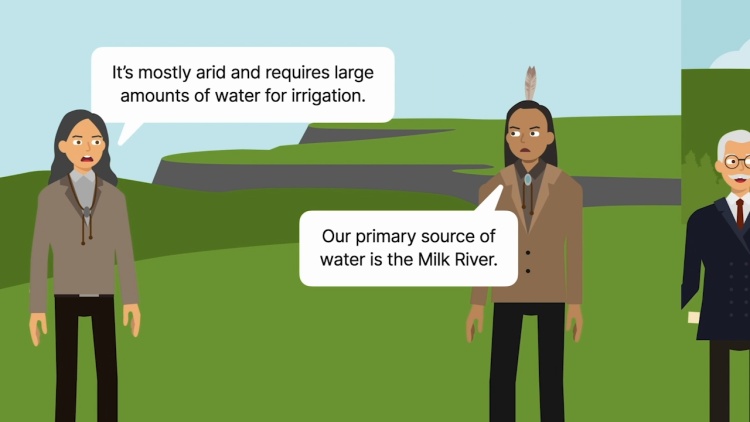Winters v. United States
United States Supreme Court
207 U.S. 564 (1908)
- Written by Lauren Groth, JD
Facts
The Gros Ventre and Assiniboine Indian Tribes (Tribes) lived on a large area of land in Montana. In 1888, the Tribes signed an agreement with the United States giving up much of their land in exchange for the Fort Belknap Indian Reservation. The area in which the reservation was situated was arid but was bordered by several rivers and waterways that were used to irrigate the land. In July 1898, Winters (defendant) settled on land near the reservation that bordered the same waterways. At the time, Winters was not aware of the existence of the reservation or any rights the Tribes may have had to the water that flowed through the reservation. In 1889, Montana became a state. The United States, on behalf of the Tribes, sued for a determination of who had rights to the water that was necessary to irrigate the reservation and that flowed past Winters’s land. The United States argued that the Tribes were given sole rights to the water through the 1888 agreement. Winters argued that his land was worthless without access to water and that, even if the agreement gave the Tribes water rights, those rights were eliminated under the equal-footing doctrine when Montana joined the United States.
Rule of Law
Issue
Holding and Reasoning (McKenna, J.)
What to do next…
Here's why 905,000 law students have relied on our case briefs:
- Written by law professors and practitioners, not other law students. 47,100 briefs, keyed to 995 casebooks. Top-notch customer support.
- The right amount of information, includes the facts, issues, rule of law, holding and reasoning, and any concurrences and dissents.
- Access in your classes, works on your mobile and tablet. Massive library of related video lessons and high quality multiple-choice questions.
- Easy to use, uniform format for every case brief. Written in plain English, not in legalese. Our briefs summarize and simplify; they don’t just repeat the court’s language.





